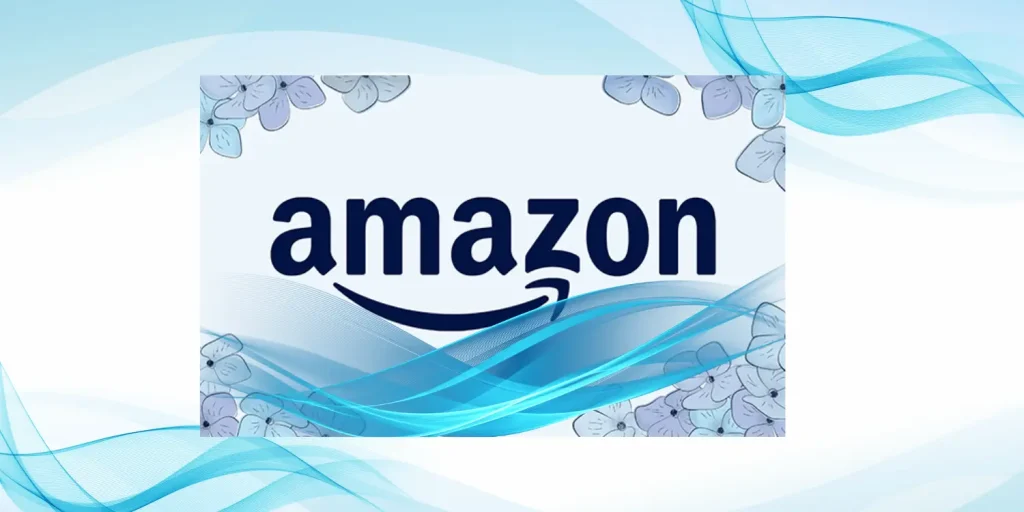Introduction to Amazon Product Reviews?
These reviews are not just extremely helpful; they play a significant role in shaping the online shopping experience, and they carry weight among consumers looking to make informed buying decisions. Considering that there are thousands and millions of products available, potential customers usually look for others’ opinions and position customers’ experiences about the products’ quality, effectiveness, and reliability. The context of these reviews, therefore, not only provides you with the essential details of the product but also usually the disadvantages and perceived advantages of the product, so that one can assist in arriving at the choice that best suits his or her requirements.
And this doesn’t just mean rating a product on a scale of one to five stars, but writing a comment, which can be anything from a few words to all-out essays. That server-client modules were loafing server-client modules provides you a sense of community feel while keeping the marketplace transparent due to such crowdsourced info. Finally, Amazon often prioritizes bestsellers, so you may be competing with a much bigger fish.
Yet the reliability of internet-based reviews has been called into question for some time now as critics point out the ability for bogus [or incentivized] reviews to muddy confidence in consumer opinion. Finally, with so much choice, it makes the decision-making process extremely challenging, but faux product testing is one of the few things that help shoppers navigate their way through the millions of products on Amazon that shoppers can take home so they can feel as satisfied as possible with other people besting them with their purchases.

How to Get Paid for Reviews
Writing reviews for cash is a wonderful way to put your thoughts to work. Here’s how to get started:
Choose Your Niche
Choose an area of focus, whether it’s tech devices, literature, movies, restaurants, or beauty products. When you specialize in a niche, you become more credible and are more attractive to particular audiences and clients.
Build an Online Presence
Start a blog, YouTube channel, or profile on social media to show your reviewing-writing skills. Publish well-written, sincere, and thorough reviews frequently to gain readership and trust.
The second phase of your strategy is to sign up for paid review platforms.
Many different platforms pay users for evaluative writing, such as sites like UserTesting, InboxDollars, or ReviewStream. Others concentrate on particular verticals, like software (G2) or products (Amazon Vine). Now, join these platforms and explore opportunities.
Collaborate with Brands
When you have already established your expertise, then write to brands for this opportunity to give a review. Companies are often very interested (and generally willing to pay in one form or another) to hear honest feedback about their products or services.
Join Affiliate Programs
Sign up for affiliate programs, like Amazon Associates. Review the products you use and add affiliate links. You get a commission when readers make a purchase using your links.
“Be transparent and honest.”
Authenticity is essential. Readers and organizations appreciate objective opinions. Outline sponsored evaluations to maintain trust and adherence to regulatory outlines.
You can turn this into a steady income stream by simply dedicating yourself to producing only high-quality reviews and marketing them aggressively.

Is Amazon Paying for Positive Reviews?
For a long time, Amazon has been the leading e-commerce platform, creating a marketplace with millions of vendors and consumers. But when it comes to product reviews, one big issue that comes with it is whether the reviews are real or not!
Just to clarify, Amazon is not paying tacitly for positive reviews. It also has strict policies against reviews that are paid or incentivized to keep its platform trustworthy. Amazon’s terms of service prohibit merchants’ offers of cash, free products, or discounts to customers in exchange for positive feedback. Violating the rules may lead to account suspension or permanent limits.
Yet some third-party sellers still take advantage of loopholes. They employ such tactics as offering refunds after the fact of a transaction or offering products at no charge but with the obvious hope that you’ll sing their praises. “Review farms,” or fraudulent accounts, may also create copious positive feedback. Such deceptive practices erode consumer trust and result in a distorted view of product quality.
Amazon has recognized that counterfeit products and fake reviews can form an unfortunate cycle and aggressively fights it with machine learning algorithms and investigative teams that patrol the cornucopia for fraudulent reviews and counterfeit products. The company has also taken legal action against companies that provide fraudulent review services. Still, the enormity of its marketplace makes it difficult to eradicate such practices completely.
Although Amazon does not pay for favorable reviews, some sellers’ practices have created skepticism. For consumers, reading reviews for signs of bias is still critical to making sound choices.

Will Amazon Pay Me for Reviews?
Such individuals are not paid by Amazon for writing reviews. To guarantee honest and unbiased feedback, the company offers no compensation for customer reviews. Amazon reviews are meant to be reflections of actual experiences that consumers have encountered with products, so all other buyers can make informed choices.
But there are ways someone could see an opportunity to earn just for posting reviews, but they should abide by Amazon’s rules to avoid penalties:
Amazon Vine Program: In exchange for an honest review, Amazon invites some of their customers (called Vine Voices) to receive products free of charge. Participation is based on invitation, and previous reviews must be considered of high quality and helpful. Note: Members are not paid for reviews, and products are free of charge.
THIRD-PARTY SELLERS: Some sellers are offering money, discounts, or free products for positive reviews, which is illegal. This is against Amazon’s policies. It’s a violation of the service agreement; it can lead to sanction or extended punishment, like an account suspension” or even a suit, he said.
Affiliate: If you are an Amazon Associate, you earn commissions by referring people to buy products. But this is not writing reviews, and it can be a rightful way to make money by promoting Amazon products.
Never violate Amazon’s review policies. Genuineness is key, and breaches could tarnish your image and account standing. If you think you can earn with Amazon, consider legal options like the Vine Program or Affiliate, but nothing else:
Does Amazon Reward You for Reviewing Products?
There is no cash or direct compensation/reward for reviewing an item on Amazon. But users who regularly write high-quality and thorough reviews can sometimes qualify for Amazon’s Vine Voice program, an initiative that lets certain reviewers get free products in return for objective criticism. It’s important to know that the participants in Vine are selected not by the number of product reviews they have written but rather by how helpful and high-quality those reviews were.
Amazon’s own guidelines strictly ban vendors from incentivizing reviews, whether that’s through discounts, free products, or cash. This action helps keep consumer ratings genuine and untainted, which in turn keeps the platform itself honest. If a vendor offers rewards for reviews, it’s a breach of Amazon’s terms, and users are encouraged to report such incidents.
Amazon itself doesn’t offer users any direct rewards for reviews, but leaving helpful feedback can offer indirect rewards. Often, high-quality reviews earn “helpful” votes from fellow customers, increasing their visibility and credibility as a reviewer. For devoted reviewers, this acknowledgment can be gratifying in itself, and many of them find that their input helps others make better buying decisions or spurs stimulating discussion.
For the most part, Amazon reviews are supposed to be a community-based effort to provide honest feedback and improve the buying experience for everyone. If you are writing reviews with the hopes of scoring rewards, prioritize writing original, incisive content that provides valuable information for other consumers. Amazon’s review ecosystem is built on authenticity, not compensation.”

How to Review Amazon Products and Get Paid
If you hate making your weekly trip to The Amazon, perhaps instead getting paid to review Amazon products and working your way up to closer proximity to your precious shopping items might be a better fit? Here’s how you can do it:
Become An Affiliate: Amazon’s Associates Program allows you to promote products and earn a commission. Write reviews of products you used, and share affiliate links via blogs, YouTube, or social media. You get a percentage of the sale when consumers buy through your link.
Start Review a Blog or Channel: Start a blog/YouTube channel focused solely on reviewing products in a specific niche (for example, tech gadgets or home hacks). Develop an audience, and companies might come to you to review their products—sometimes, you’ll be paid, and other times, you’ll be sent free goods.
Partner with Review Platforms: Work with UserTesting, Influenster, and Vine (Amazon’s by-invitation-only program) to review the product. Although the participants don’t get paid that way, they do receive complimentary products in return for full reviews.
Writing reviews for companies: Various businesses hire freelance writers to review their products on Amazon or other platforms. Platforms such as Upwork and Fiverr frequently offer these kinds of opportunities.
- Do not write fake reviews: Do not take money to write a fake review. Furthermore, Amazon has strict prohibitions against incentivized or fake reviews, and any attempt to engage in those activities can result in account suspension or even legal action.
If you demonstrate credibility and produce honest, high-quality reviews on an ongoing basis, you can make reviewing products into a sustainable side hustle or a career.

Who is Eligible to Write an Amazon Review?
There’s a huge incentive for consumers to leave an honest judgment of products they buy on Amazon. There do exist guidelines that are intended to help ensure the people who submit a review have been honest with their intention.
But the person who checks the product should have an Amazon account, and this is the main rule to review on Amazon. The account also has to have made at least one purchase of $50 or more in the last 12 months on a valid credit or debit card. This measure is to prevent review spam and maintain trust in the content on the site.
You’re permitted to write a review of a product without having bought it through Amazon (though it must have been registered on the site). Amazon lets “Verified Purchase” reviews take priority, meaning the reviewer actually bought the product on Amazon, and that makes the reviews more credible to someone who might potentially buy it.
Unless specifically noted as being part of Amazon Vine, Amazon does not permit receiving evaluations in exchange for incentives, including free products, discounts, or money. The Vine program allows purveyors to provide free products to trusted reviewers, who provide their opinions on them prior to—or as soon as—the products are released.
To keep reviews honest, accounts suspected of artificially inflating reviews, submitting fraudulent reviews, or spamming will lose their review privileges. Customers must comply with Amazon’s Community Standards or risk punishment.
So, if you happen to fall between the categories of being a consumer of Amazon and/or tipping the scales of purchases well above the threshold, ARE friendly to the ‘guidelines,’ and offer thoughtful feedback, then you are free to review respective sites as being ‘balanced’ and informative.

Do Amazon Reviews Show Your Name?
The name that shows up with a review you leave on Amazon depends on your Amazon profile settings. These function as your “public profile name,” the one that Amazon automatically displays. Your real name (unless you make me do that). This is something most users prefer changing (to something more generic or pseudonymous) that would give them a layer of privacy.
To confirm or change your public profile name, visit your local settings and check the module under the “Your Profile” tab. From here, you can modify the name that appears publicly. This way, you control what is shown around your identity when you use Amazon’s community features, including reviews, wish lists, etc.
Not to mention reviews themselves—minimize any personal inclination toward specificity in the review body—Amazon provides some anonymity, but think twice about posting details on the Clean-Up Guy from your last promotion. The body of the review is visible to the public and cannot be anonymized.
Amazon’s review system aims to foster transparency and trust, which is why you are allowed to write under a pseudonym, though the platform advises against any misleading or deceptive practices. Anyone else can access your review history by clicking your profile name, but not sensitive account details.
Actually, Amazon reviews show what name your profile is under, and you choose that name. If you’re concerned about privacy, change your settings before posting reviews.
Does Amazon Detect Fake Reviews?
MEME 2One of the largest online marketplaces in the world, Amazon—which has established systems to proactively identify and delete false reviews—wrote that fake reviews, typically written by individuals or robots to fraudulently enhance a product’s numbers, are a significant problem; they undermine consumer trust and make the playing field uneven.
Amazon invests significant time and resources to use a mix of powerful algorithms, machine learning, and human monitoring to identify and eliminate bogus reviews. These analytics lines of work look at account history (to determine if they are a previously registered user), purchase verification, review patterns (reviewing in a short time period), and even the content of the reviews (language of review). An account that’s posted several breathless descriptions of unrelated products within a short time might, say, be under suspicion of system-gaming. Another essential factor in verifying authenticity is the purchase badges that show a reviewer actually bought the item through Amazon.
And Amazon also watches for schemes to manipulate reviews, in which companies offer free products or pay for positive reviews. Depending on what they find, Amazon can remove suspicious reviews, suspend accounts, or prosecute violators. In recent years, Amazon has sued fake review brokers and tried to crack down on sellers who break its review rules.
While these efforts are ongoing, false evaluation remains a challenge, in part because of the sophisticated techniques that malicious actors use. Factories of fake reviews and commenters who are paid to post them typically try to mimic real behavior, making them harder to spot. The e-commerce giant has taken measures to protect consumers by allowing suspicious reviews to be reported and emphasizing transparency in its review system.
So the problem is still very active, but Amazon has certainly formed a good fight against fake reviews. It allows it to adjust its detection method to ensure a safe shopping experience for its users.

Conclusion: Amazon product review?
He’s an under-concentrated summary of an Amazon product review. If you’d like changes, let me know a little more about what the product is!
Conclusion:
Having used this product extensively, I can accurately say it does what it says it will, with little downside. Due to the build quality, intuitive design, and reliable performance, I think this is [describe specific use case, i.e., for those looking for a convenient kitchen device, dependable tech solution, or quality home accessory] worthy. What the product gets right (example—materials, features, or functionality) absolutely sets it apart from the competitors, so you know you’ll [items that prove it].
That said, there are tiny areas for improvement. For example, [pro versus con, in some cases: harder to set up, a little buggy, expensive]. A few of these are a bit minor, however, and certainly don’t detract from the overall value the product provides.
hats off to the customer service experience as well. Feedback: [You reply quickly to negative feedback, lend courtesy and customer support, or you provide a generous refund policy.] you have [quality of service, dedication, or helping hand]
If you’re a first-time buyer looking to upgrade from a previous version, it’s a fine choice. It also finds a great balance on cost to give you performance you cannot neglect the inclusion in your [home, office, lifestyle]. For me, it’s highly recommended if you are looking for [certain use or improvement].
Will certainly buy again!